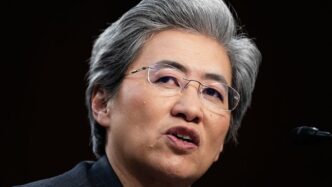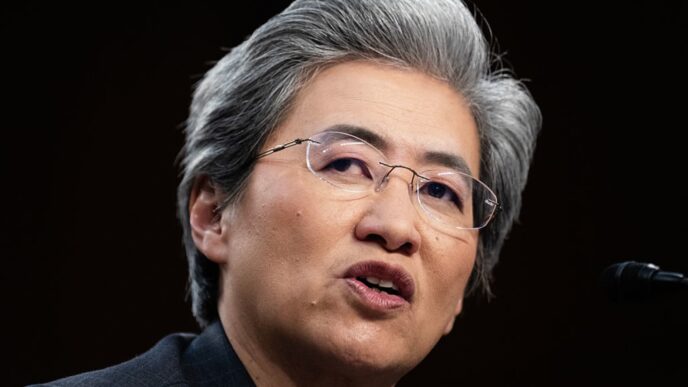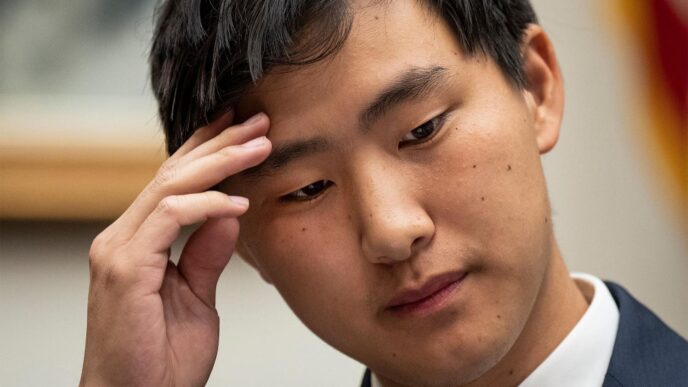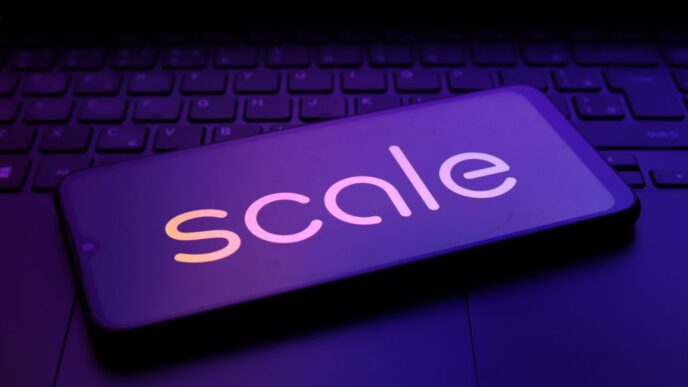DeepSeek is sparking fresh debate about the U.S.-China AI race. Experts weigh in on what winning really means and who’s left out.
The chatter so far fixates on timelines, compute power, and export controls. But the real questions on governance, adoption, and global impact are getting ignored.
Timnit Gebru, Distributed AI Research Institute founder, called it a “race to the bottom.” She warns that hype around DeepSeek’s reasoning powers is misleading and fears less oversight will fuel data theft and reckless AI use.
Timnit Gebru stated:
I do believe that it’s a race to the bottom.
What is the hype? What’s reality? We see even with DeepSeek, there are claims about reasoning capabilities, and we’re not sure of some of these benchmarks. It’s unclear if a particular high performance on a particular benchmark actually means that these models are doing reasoning right, so there are a lot of misleading claims currently.
What worries me is that this is further going to be used to say that the U.S. has to win the race against China, and therefore companies and the U.S. should face absolutely no restrictions — which means more data theft, and absolutely no oversight into what these models are producing.
India sees itself more as a major AI adopter than a leader in innovation, says Sameer Patil from India’s Observer Research Foundation. The country must build platforms like ChatGPT or DeepSeek instead of copying others.
Hugging Face’s Irene Solaiman notes the clash isn’t just on tech but values. Chinese models like DeepSeek and Qwen show different content limits and are cheaper and more accessible, pushing open-source competition worldwide.
MIT’s J.S. Tan says the Chinese state focuses AI on industrial productivity, not just consumer apps like WeChat.
UCLA’s Ramesh Srinivasan warns this race will widen economic inequalities and says the Chinese approach is much cheaper compared to U.S. mega-investments.
Ramesh Srinivasan emphasized:
This race is likely to further cement and widen economic inequalities.
Australia’s Dang Nguyen says “winning” AI isn’t just tech prowess but controlling ecosystems that tie smaller countries into extractive dependencies. That deepens inequalities, especially in Global South regions.
India’s Aakrit Vaish calls India a huge AI consumer market. The country’s not a top competitor yet but has the talent and scale to grow carefully.
Nigeria’s Kashifu Inuwa Abdullahi stresses AI leadership needs inclusion and governance, not just compute power. Nigeria aims for local language models and data protection.
George Washington University’s Jeffrey Ding says the U.S. is poised to win the long haul on AI diffusion, even if China closes the innovation gap.
Princeton’s Sayash Kapoor points out Chinese AI tech trails by just 6-12 months and the real game is AI adoption, not just breakthrough models.
DGA-Albright Stonebridge’s Paul Triolo notes this isn’t a clear race like 5G or electricity. It’s a power competition with big risks, especially given U.S. efforts to block China’s AI advances.
Paul Triolo commented:
Most countries and companies can only stand back and watch as the elephants battle, hoping not to get crushed
Stanford’s Alvin Wang Graylin calls the AI race hype dangerous. He urges cooperation to prevent conflict and ensure safe, beneficial AI, warning that speed without collaboration risks war.
Alvin Wang Graylin said:
If one of us fails, all of us fail. The better model is collaborative acceleration: We work together, we share resources, make sure the benefits are societal, focus on safety over speed, and think long-term. If we do that, we’re going to get there a lot faster.
The DeepSeek moment exposes a complex AI contest. It’s more than sprinting to build the best model — it’s about who sets the rules, controls data, and shapes the future globally. No clear winner yet.














